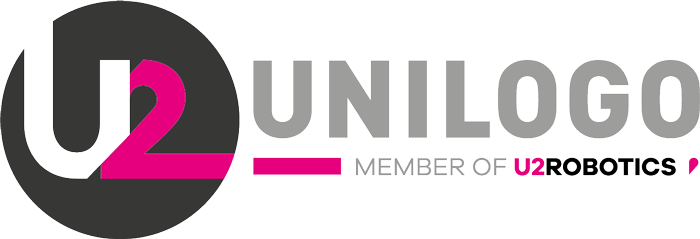The pharmaceutical industry is a huge and extremely important industry. Due to the specific nature of drugs, the pharmaceutical industry has many rules and requirements that are not found anywhere else. For this reason, pharmaceutical manufacturing machines must also comply with several guidelines.
Table of contents:
The pharmaceutical industry and automation
Like many other industries, the pharmaceutical industry successfully uses automated solutions in its production processes. It is impossible to imagine a modern pharmaceutical plant without the latest technological solutions that make drug manufacturing more efficient while maintaining high product quality. This is made possible by a high level of integration between the production machinery and the software that manages the drug manufacturing process.
Drug manufacturing is a highly complex process, consisting of a number of complex operations that must follow the very stringent requirements of the pharmaceutical industry. The use of modern machinery and equipment with advanced control and measurement systems has made it much easier for pharmaceutical manufacturers to meet these requirements.
Modern pharmaceutical manufacturing machines simplify controlling the entire production process for manufacturers. Today, every pharmaceutical plant uses advanced production equipment such as tablet presses or packaging machines and IT systems to manage product quality control, production procurement and transport of finished drugs.
Pharmaceutical manufacturing machines – what requirements must they meet?
To ensure that the final product is effective and safe to use, a number of strict requirements must be met during drug manufacturing. These also apply to the machines used in the production process.
The first and most important requirement is the material from which the drug production equipment can be made. The requirements are clear and unambiguous. The pharmaceutical industry primarily uses machinery made of stainless and acid-resistant steel, which meets the requirements of GMP and European Union community directives. These include directives on the safe use of machinery, i.e. the Pressure Equipment Directive, the Machinery Directive and the ATEX Directive on machinery intended for use in potentially explosive atmospheres.
Pharmaceutical manufacturing machines must also have a high degree of cleanliness, which precludes the use of lubricants or open bearings. Pharmaceutical production equipment should also be designed to be easy to maintain. For this reason, machines usually have high feet that allow the space underneath to be easily cleaned.
Pharmaceutical manufacturers very often wash entire production lines, so the electrical equipment used in the machines should have a high degree of tightness to avoid damage during cleaning.
How are drugs made and what machines are used in production?
Drug manufacturing is extremely complex, so we will describe it briefly. The first step in making a drug is to grind the materials that will be used to make it. This is done using conical, bucket or air mills. The next step is to prepare the ground material for tabletting or encapsulation by weighing and adding excipients.
After weighing and adding the inert substances, all the ingredients are mixed in the exact proportions specified in the drug formulation. This is done using mixers, which often combine granulators and dryers’ functions.
The next step is tabletting or encapsulation. Tabletting is performed by tabletting machines and involves pressing a strictly defined amount of powdered drug into the machine’s matrix. Modern tabletting machines can produce thousands of tablets per hour. The capsule-filling machines used in the encapsulation process fill empty capsules with powder, tablets or tiny particles. This depends on the type of drug.
Once the tabletting or encapsulation process is complete, the finished products are coated. The coating protects the substance in the tablet or capsule from harmful external influences such as light or moisture and improves the drug’s aesthetics. The coating is carried out in a coating pan, in a tabletting machine, electrostatically or in a fluid layer.
The final stage of drug manufacture is the packing of the finished products in the unit and collective packaging. Depending on the product, unit packaging may be blisters, cartons or bottles or jars. In the case of bottles and jars, capping machines such as Unilogo’s Z9 capping machine are used. These types of machines have advanced package closure control systems that eliminate the risk of unintentional opening.
Regardless of its form, pharmaceutical unit packaging must be labelled with essential information about the drug, such as expiry date or batch number. Various labelling machines are used to apply the labels, such as the ROTO labeller for round packs and the DUO ROTO labeller for bottles, jars and flat packs.
The final stage of production is the packaging of drugs in collective packaging, such as cartons. This is done using strapping machines, board machines, wrapping machines and palletisers.
Pharmaceutical manufacturing machines – a few words at the end
After reading this article, you will have a good understanding of how drugs are manufactured, the requirements of the process and how these affect the machinery used in the pharmaceutical industry.
As a reminder, the basic requirement for pharmaceutical manufacturing machines is to be made of stainless and acid-resistant steel. This is due to the need for cleanliness in pharmaceutical production, partly because the equipment on the production line is frequently washed and must be resistant to water and detergents. For this reason, all electrical equipment and control cabinets must also be sealed.
Due to the specific requirements of pharmaceutical manufacturing machines, it makes sense to entrust their manufacture to a company with experience in this industry. That is why we hope you will work with Unilogo. Using the contact form on our website, you can quickly and easily get in touch with our team of experts, who will help you choose the best solution for your company.


